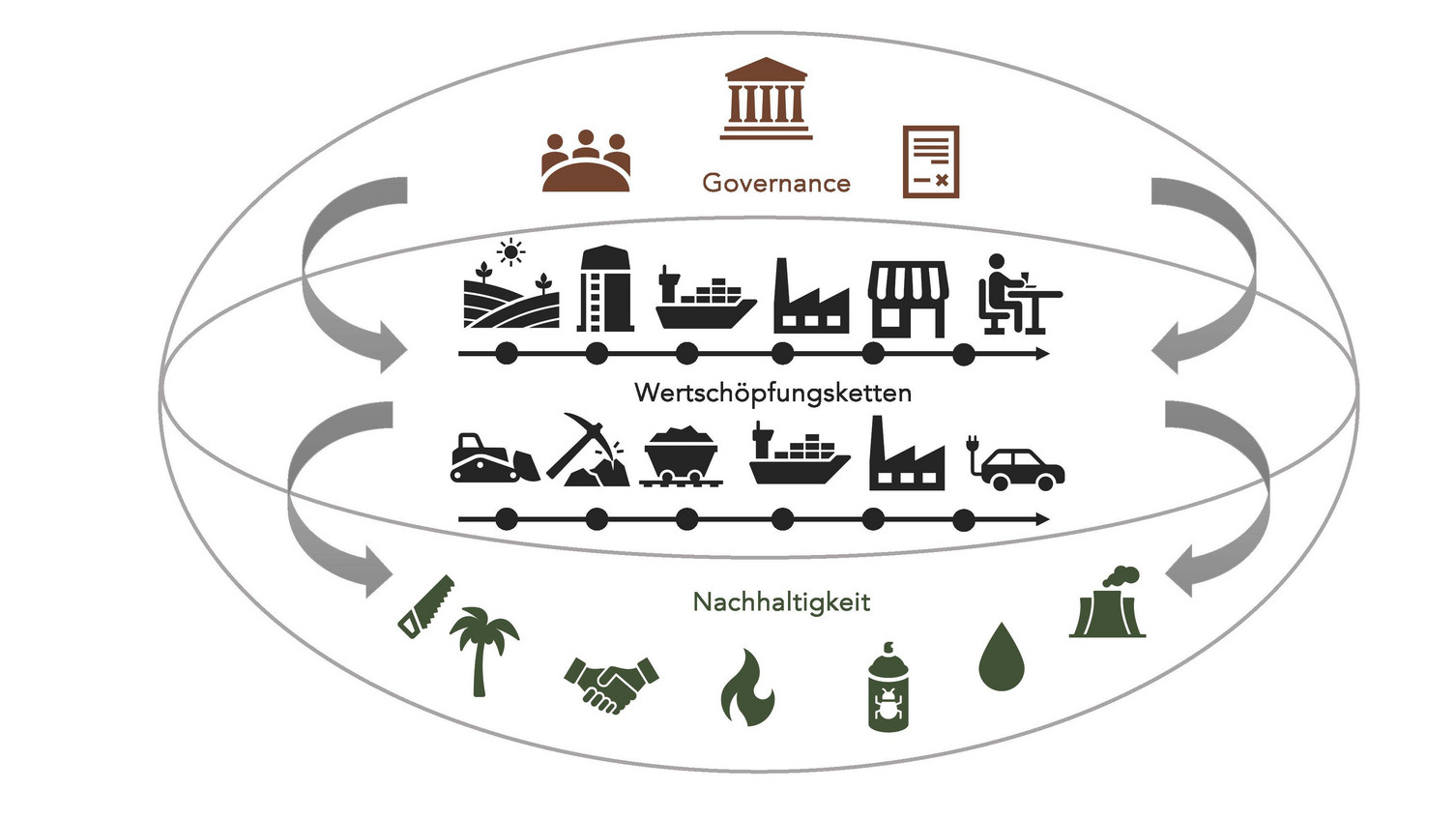Interdisciplinary research on the legal regulation of supply chains
Environmental protection and respect for human rights all the way
2024-09-02 How can policy and legislation help to achieve a sustainability transformation of global supply chains? The “Wissenschaftsraum” (science space) “Sustainability Governance of Global Supply Chains” explores this question under the direction of Prof. Dr. Jens Newig.
Cheap clothes, low-priced meat – the connection between consumer behaviour in the Global North and ecological destruction and social exploitation in the Global South is well known. The collapse of the Rana Plaza textile factory in Bangladesh in 2013, for example, tragically revealed that labour safety standards in many producing countries are often inadequate. The massive clearing of species-rich rainforests to meet the global soya feed demand for livestock is also widely discussed in the media. “These examples show that prices are so low because production is neither socially responsible nor sustainable. The research carried out in our science space addresses such problems with supply chains. We are trying to help solve these problems,” explains Jens Newig.
The Professor of Governance and Sustainability at the Leuphana Institute for Sustainability Governance emphasises that it nevertheless took quite a while for politicians to act. Legal regulations on the sustainability of supply chains, usually referred to in research as global value chains (GVCs), have only come into force in European countries in recent years (e.g., the French Loi de Vigilance (2017) or the German Lieferkettensorgfaltspflichtengesetz (LkSG) (2023)). In 2024, the EU finally adopted the Corporate Sustainability Due Diligence Directive.
These regulations start with the companies themselves, which must prove that they comply with sustainability, human rights and environmental standards throughout their entire supply chain – from production to suppliers. Newig notes that the consequences of these laws are largely unexplored: “The supply chain regulations are now in place. That means we can now see their first material effects. How are companies dealing with the new regulations? How is sustainability reporting in companies changing? Which groups take legal action against human rights violations in production countries, and what are the results of the corresponding legal proceedings? How do the authorities monitor compliance with the law? And what are the final consequences for the production countries?” An interdisciplinary approach is essential to answering these questions and investigating the complexity of global value chains.
The science space combines expertise from the fields of political science, law, economics and geography. At Leuphana, researchers from three faculties are on board, including the School of Sustainability as well as the Schools of Management & Technology and of Public Affairs. The participating researchers from the Universities of Oldenburg and Osnabrück and the German Institute for Global and Area Studies (GIGA), Hamburg, add the fields of comparative political science, sustainable supply chain management, geography and development cooperation, and thus explicitly the perspective of the Global South. Jens Newig states: “We want to map the entire chain of legal mechanisms, from processes in the companies up to the production countries. And because this is so complex, it is great that all these disciplines are involved.” Cooperations with companies in Lower Saxony and with NGOs are also being considered to incorporate a practical perspective. In the long term, the science space aims to provide a basis for political and economic action, for example in the form of recommendations for action for politics and business or the development of further training programmes for companies and authorities.
The “Wissenschaftsräume” funding programme of the state of Lower Saxony and the VolkswagenStiftung supports cooperation between universities in Lower Saxony and non-university research institutions. The science space “Sustainability Governance of Global Value Chains” is building an interdisciplinary network in Lower Saxony in which transformation knowledge on the interaction of public regulations with sustainability management in companies is generated – with the goal of curbing environmentally harmful and human rights-violating consequences of supply chains.

